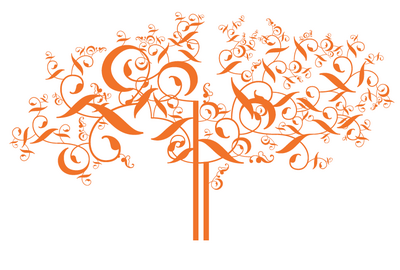
As we near the end of this year’s Open Access Week, we are delighted to feature a guest post from our partners at the Mary Lou Fulton Teachers College Scholarly Communications group sharing their thoughts on this year’s theme.
Fact: Researchers are encouraged to publish by universities, research organizations, governmental bodies and funders. Yet, are their choices about where to disseminate or publish research prioritizing the best interests of the public and their own research communities, or are they enhancing the profits of commercial publishers? The 2023 International Open Access Week’s theme, Community over Commercialization, invites researchers to take a deep look into the end game of the scientific research they produce.
When research support is provided through public funds, the results of that research, by principle, should be openly and freely available to the public. Yet, too often this is not the case as researchers sign publishing contracts that place those same research results behind the high-cost paywalls of commercial publishers. In effect, members of the public and even colleagues in the same research circles must pay to access research already paid for through public funds.
Open access/open science practices help to prevent commercial publishers from such double-dipping. Global efforts to support open access and open science have long emphasized community over commercialization. Recently, the 20th anniversary of the 2002 Budapest Open Access Initiative released four major recommendations to promote open science, all of which center on the economics of scholarly publishing and, more specifically, the need to privilege open research over publisher profits.

More recently, UNESCO’s Recommendations on Open Science highlight the collective benefits of open science in similar terms. As a global public good, “Open science infrastructures should be organized and financed upon an essentially not-for-profit and long-term vision, which enhance open science practices and guarantee permanent and unrestricted access to all, to the largest extent possible.”
In light of this dilemma, researchers need to be aware of their role in research dissemination. Community-controlled infrastructure already exists that might better serve the interests of scientific research communities and the public, but how can researchers support these community-focused options? We asked some recent lead editors of open-access scholarly journals at the Mary Lou Fulton Teachers College about this and here is what they said:
Audrey Beardsley: Researchers need to better understand the fundamental (and correct) logic behind open-access, including but not limited to the fact that, indeed, “When research support is provided through public funds, the results of that research, by principle, should be openly and freely available to the public.” When they understand and embrace this logic, they not only need to prioritize publishing their scholarship in open-access journals, but also prioritize the need for more open-access journals. While, for example, moving journals away from commercial publishing groups presents a non-trivial set of challenges (e.g., funding open-access journals), researchers might think in more creative ways about how also extend this logic in pursuit of such community-focused options (e.g., in collaboration with funders, community-based organizations and in researchers’ grants).
Gustavo Fischman: We urgently need to engage in the complex discussion of the various conceptions, possibilities, and costs of open access/open science. We cannot keep publishing more and more without considering scholarly and pedagogical/social benefits and who pays for that. Broadly speaking, open access/open science is based on the principles of pursuing rigorous scientific projects without ignoring complementary values such as the social and scientific benefits of expanding the diversity of the scientific workforce, making sure that all people involved are treated and rewarded fairly; and understanding that embracing transparency in pursuing public good is not antagonistic with the goals of increased efficiency and scientific rigor.
Ivonne Lujano Vilchis: Student-led journals are a great example of non-commercial, community-focused publications that researchers can support. The goals of student-led journals extend beyond purely editorial endeavors, as they are spaces for students to develop their academic voice and enhance their evaluation skills. While several student-led journals are nonprofit open-access publications, they may be receiving limited financial or institutional support. Allocating publication funds to student-led journals is an effective way of helping early-career researchers navigate the publishing systems with more confidence and strengthening academic community ties.
As the editors above emphasize, awareness, support and candid, in-depth conversions of open access and open science are critical if research is to remain accessible and reach its greatest potential to enhance the public good. Fischman also noted, “Without a serious commitment to the public good and fair and effective open access policies and infrastructures, open access/open science is just a chimera.”
Read our other posts from this series:
Welcome to International Open Access Week 2023
A 'diamond' in the rough: no cost open access
Open Access Week 2023 next steps